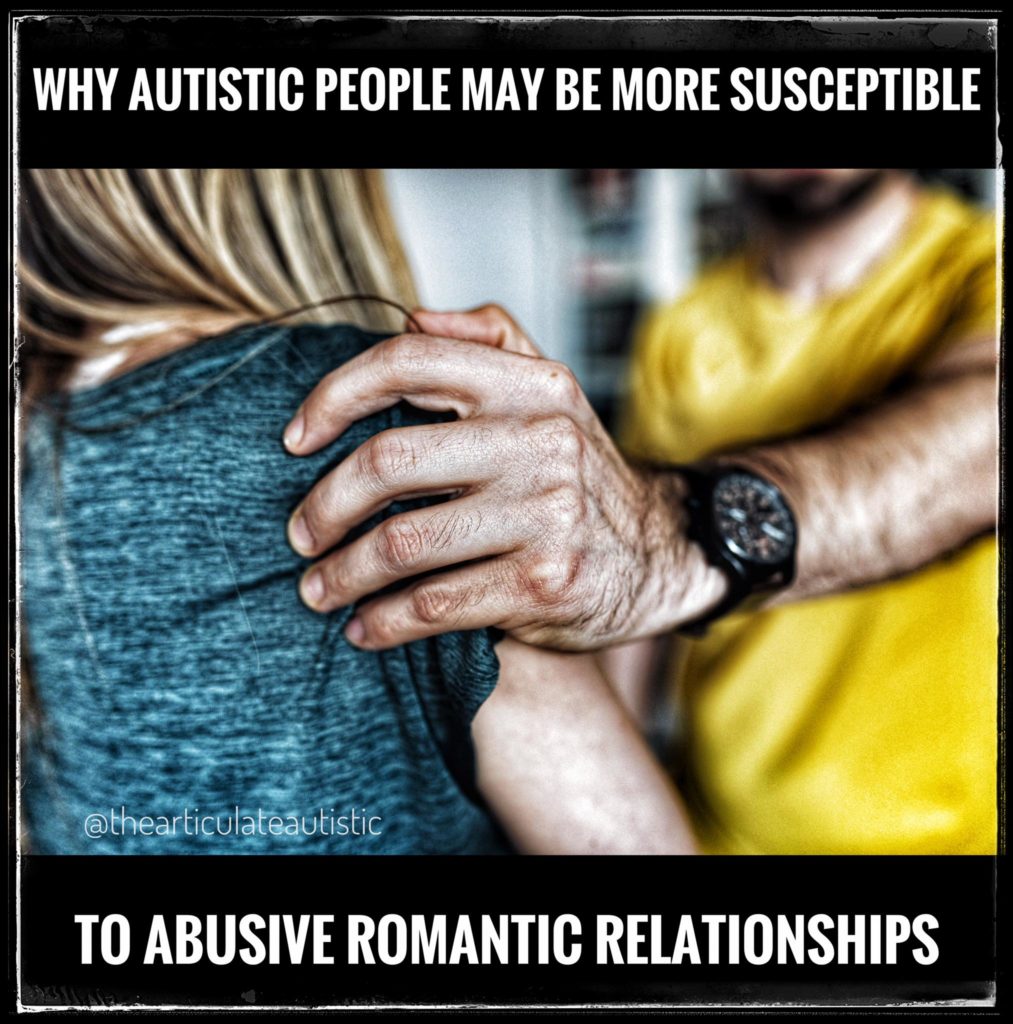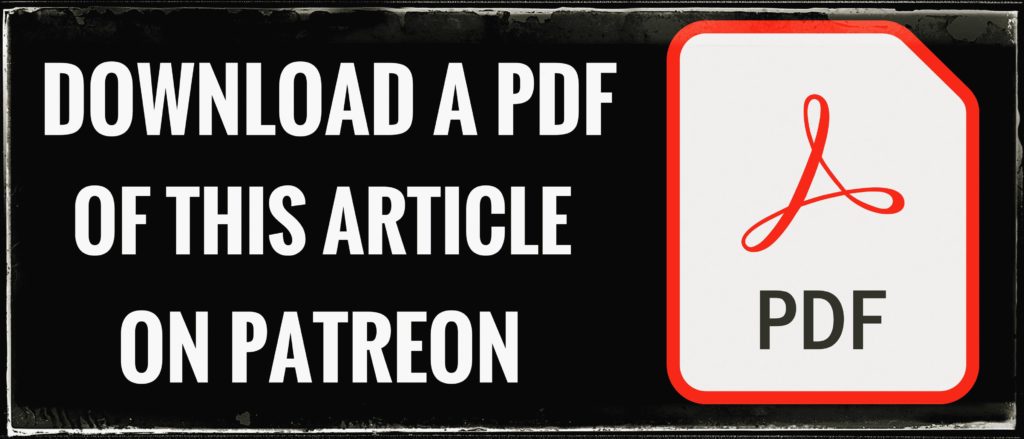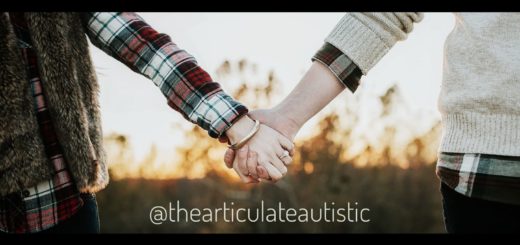Why Autistic People May Be More Susceptible to Abusive Romantic Relationships

Are you an autistic person who has been in an abusive romantic relationship? I am, and I know of many other autistic people who have been through this, as well. While anyone of any race, gender, sexual identity, religion, or ability can find themselves in an abusive relationship, there are certain groups of people who are more susceptible to it than others.
Since the only experience I can speak on with any true authority is one I’ve faced myself, I’d like to focus on autistic people and why we might be more vulnerable to partner abuse.
Disclaimer – Abuse is Always the Fault of the Abuser, Never the Abused
Before I begin, however, I’d like to point out that I’m not victim-blaming in this piece (or in any of my pieces). I’m simply stating the reality of how the autistic brain works in a neurotypical world, and how that has a profound impact on every aspect of our lives, including dating and romantic relationships.
Just because we have traits that may make us more of a target for abuse, this does not mean that the abuse itself is ever the fault of the victimized person. Someone who preys on the vulnerable and abuses them is always the problem, and just because some autistic traits make it “easier” for abusers to take advantage of us doesn’t mean we brought it on ourselves.
In fact, I can think of nothing more disgusting than a person who sees another human being who may be more trusting and innocent and then purposefully choosing that person to abuse.
So, what makes autistic people more likely to be targeted for abuse?
- We Take People at Their Word
Autistic people, by and large, say what we mean and mean what we say, and our default setting is to go out into the world, at first, believing everyone else is the same way. I know when I was younger that I truly had no idea how many people in the world misrepresented themselves on a daily basis; either for the purposes of cruelty, to further their own social agenda, or because they’d become so entrenched in their own false persona, they started to actually believe it. No matter the case, taking people at their word can make autistic people a target for abuse because we may not think to question words or behaviors that a non-autistic person might look at through a more suspicious, critical lens.
- We Can Miss the Subtle Red Flags
Autistic people are literal and rely heavily on words to receive information from other people. This can tie into taking people at face value in that we listen to the words, believe the words, and act according to the words. However, we may miss changes in vocal tone, facial expressions, or body language that could clue us into emotions that do not match the words being said.
Using myself as an example:
I can usually tell when something is “off” with another person because the words they are using don’t match the “vibe” they’re putting off, but I won’t always know what it is that seems off or why it’s off, which has gotten me into situations where I was in way over my head before I realized I was in danger.
Subtle red flags that a non-autistic person might pick up such as an abusive vocal tone, a disgusted facial expression, or a threatening body posture may be missed by the autistic person whose brain is primarily focused on words.
(Although those of us with complex post-traumatic stress disorder MAY pick up on all of these things and even question them, the abuser may explain our concerns away with words, so we remain a bit emotionally off-balance, questioning our perception of reality. This is what is known as “gaslighting”, and an abuser can and will do that to anyone they’ve chosen to target, regardless of neurotype.)
- We May Subconsciously Attract the “Misfits” of the World
As an autistic person who grew up in the ‘80s and ‘90s with no diagnosis and no support, I didn’t know how my brain worked or even that it worked in such a drastically different way from the non-autistic people around me. I just knew people didn’t like me, didn’t want me around, didn’t believe me, and thought of me as a strange, unknowable creature that was best avoided.
I didn’t understand why, but I did know that I never wanted anyone else to feel that way, so when I saw others in the “misfit” and “outcast” category, I tended to befriend them. I also tended to understand them and they me very quickly, and it almost felt like magic when it happened!

The problem was, in addition to attracting other kind-hearted neurodivergent people, I also attracted abusive people. They all seemed the same to me; people like me, people from the “same planet”, so to speak, just as misunderstood and abused as I was–or so I thought.
We’d skip the small talk altogether, and have deep, philosophical conversations and trade trauma stories like Pokémon cards. Friendships and romantic relationships formed fast, rode high, and dropped like a flaming meteor.
Those connections were the only type of connections that ever felt truly genuine to me. Now I know that was co-dependency and trauma-bonding.
Authentic, stable relationships usually take time to build, small talk and boring stuff included, but my younger autistic self did not know or have a prayer of understanding that at the time, which left me vulnerable to people who would take advantage of me.
“Love Bombing” – An Abuse Tactic That Everyone Should Know About
I don’t think fast connections are always bad or potentially abusive. However, abusive people WILL do something called “love bombing” that can sweep you off your feet and have you met, “in love”, and living together in a very short period of time before you even know what happened.
This is an abusive tactic meant to create a drug-like “high” around that person to keep you addicted to them, so even when they drop the act and start mistreating you, you stay, hoping they will “change back” into the person they used to be, when what they really are is an abusive person who tricked you into getting into a relationship with them, and the side you see after the love-bombing phase is who they were all along.
- We Are Often Used to Being Uncomfortable
Autistic people, especially those who are undiagnosed and unsupported are more likely to be misunderstood and mistreated both at home and at school. Sometimes, this is the result of chronic misunderstandings related to the difference in the way autistic and neurotypical people communicate–not outright abuse. However, this type of childhood environment does lead to a chronic state of stress for the autistic person that our brains and bodies have to automatically adjust to if we are to survive our formative years.
This can make us wired for mistreatment later in life because we’ve been conditioned to live with physical, mental, and emotional discomfort to the point where we may not even recognize it for what it is until the abusive behavior escalates from subtle and occasional to an onslaught of verbal and physical violence.
- We May Not Know We’re Uncomfortable
The inability to recognize our own physical and emotional discomfort due to alexithymia (the struggle to identify and describe one’s emotions) and poor interoception (recognizing physical needs such as hunger, thirst, need for the bathroom, etc.) can also make autistic people more vulnerable to abuse.
When you’re not aware of how you feel in your own body and brain, you may not recognize someone’s covert abusive behavior until it escalates to the point where you are at risk for physical and emotional damage.
- We May Be Financially Dependent
Not to delve too deeply into politics, but I’m 100% for UBI (Universal Basic Income) for this exact reason. Autistic people are grossly unemployed and under-employed, and this can keep us financially dependent on toxic people just to survive. Whether it’s a hostile work environment, a bad roommate situation, a toxic family dynamic, or an abusive romantic relationship, many of us do not have the luxury of simply “walking away” from these situations and surviving without assistance. When financial dependence is involved in an abusive relationship, it complicates things that much further and makes it even more difficult to escape.
- We Don’t Cope Well With Change
Autistic people don’t cope well with change. Someone who didn’t fully understand how incapacitating change can be for some autistic people may not believe that it would be a factor in continuing to stay in an abusive relationship, but I can tell you, from experience, that it definitely is. Change, even positive change, can be paralyzing due to anxiety and executive dysfunction. It’s no small thing to end a relationship, even an abusive one, especially if there are assets, moving, police protection, and potential homelessness to consider.

- We May Not Have Anyone Else
This is a punch to the gut to even write, but the stark reality is, there are those of us who have ZERO emotional or financial support. We may not be able to secure stable employment, drive a car, or successfully navigate the complicated ins and outs of the neurotypical social arena, so the thought of leaving the one person who is essentially keeping us alive by sheltering us, driving us to work and doctor’s appointments, and easily making friends and connections can feel like pulling the plug on a hospital patient toward the end of their life. In cases like this, it can be just as terrifying to leave as it is dangerous to stay.
The Takeaway
Autistic people are more susceptible to abusive romantic relationships and may be forced by their circumstances to remain in them. This problem will not be solved with hotlines and shelters alone. The fact is, autistic people need to be understood, supported, accommodated, and listened to; the sooner in life, the better.




I just found your site of articles and love them. All the things that plague my autistic adult mind! I’m a survivor for sure. Wondering why it is that my path to diagnosis and support of my neurodivergent took 41 years and went in this order:
Drop out of college.
Lose college job as a result.
Lose home as a result.
Meet abusers and move in with them as a result.
Get addicted to their drugs.
Get abused.
Get kicked out to be homeless.
Get bullied in homleless shelters and on the street.
Get referred to housing after a 2 year waiting list.
Get Medicaid offered as an after thought.
ACCESS TO DOCTORS
2 more years pursuing diagnosis
now what
Oh my goodness! My brother or sister from another mother! My life; literally could be made into a life time movie, but those are horrible and often don’t have good endings. ( I think, I don’t watch them) But, I’ve come to be greatfull, for all of these horrors. Instead of my hardships defining what I am. I allowed it to define who I am because no one else gets to do that but me. If I hadn’t been through all of these things, I wouldn’t be where I am now. I wish you luck my friend.
100% for point 6. I would like to add that neurodivergents trying to build up financial stability and independence are vulnerable to ending up in toxic workplaces because of a willingness to take on anything. We don’t have the luxury of picking and choosing more suitable workplaces or lovely jobs where people ‘get’ us, appreciate our work and give us leeway. Quite the opposite. Chances drop even more in a recession when both NDs and NTs are scrabbling for any opportunity. Some workplaces follow the abusive model, echoing the abusive model of romantic or personal relationships. These experiences can result in a decision to never work full time again, which impacts on career, pension, and financial security. And therefore devastates any chance of an ND successfully getting away from an abusive partner.
Agreed! Financial dependence on an abusive partner is horrifying, and many of us NDs go through that.
im autistic and male, my wife is constantly blaming me for her faults, demeaning me,when i ask a simple question she calls it stupid and mocks me also things like calling me a servant, and if i bring it up im the bad guy im at the end of my rope i cant take it anymore, but i dont have anywhere to go, i got no friends or support and dont know what to do, and am scared to say anything anymore.
Dave, I’m so sorry this is happening to you. You don’t deserve it.
Hi, David!
I’m going through the same situation right now for the first time. We have been married for 3 years and during a discussion of why hadn’t I washed dishes and clean the kitchen since she wanted to cook breakfast… I reminded her that she had promised to put dishes in and lost her mind, abandoned me home and is gaslighting everyone and me that I am the abuser and who has made her life “miserable”.
Now she kicked me out of the house and banned me to use one more dollar from our accounts. We are married with shared accounts and we both own the place in paper and I was working (she got me fired by aggressively texting my boss and calling her horrible things).
I am an immigrant in the US (moved here because of an express love that started at the beach were I was living) with no house, no money and running away from the city because of threats.
My Daughter is 23 she is Autistic , she is a very bad emotional relationship , he controls her, bullies her, treats her as if she is a child. he controls what she eats , who she talks to , where she goes and than he verbally damages her , he insults her daily , makes her feel low, makes her feel like no one will want her but him , he calls her names , i am at a breaking point ! she wants to leave but scared to than when she does leave he uses manipulation to get her to come back than she wants to leave again . I know its her autism thats keeping her with him she has it in her mind that this is ok , what can i do as a parent to get her out and to keep her out. Laws will not let me do what i want to do because she is considered an adult , but being autistic have some kind of leeway? she dont know any better and does not understand the situation she is in . any advice would help
Charlotte, I’m so sorry this is happening. I’m going to send you an email from thearticulateautistic@gmail.com.
Dear Charlotte, Your words touched me deeply because this is exactly what I’ve lived through the last 20 years with my daughter, who is now close to 40 years old. She has finally left her abuser and was diagnosed with high functioning autism in the process of leaving. We are still processing everything but I can tell you a few things I learned over the years. Pray! God is listening. He loves your daughter even more than you do and he sees what she’s going through and cares. Secondly, the book Helping Her Get Free by Susan Brewster was incredibly helpful for me. It helped me understand why she would stay and how I could be there to help her and support her until she could leave on her own. I know you feel helpless and like no one else understands, but I do, and there is hope for your daughter. I hope it won’t take 20 years in your situation, but there is hope and restoration. Ours has been a very long road but my daughter is going to be better than ever now that she’s free, and will be getting help with her autism needs. I’m praying for you and your daughter today!
i want to say i may be weird / autisric becuase of limes disea and shots in military service with thermasole but my boyfrien shuns all social contact excey on cruise ships. at home he ecpects me to go last yea and this year i got corona than phnumonia and an ear infection and eye swelled. i want out he smokes and i have a never ending coudghto get awat i loade up my room and slept an the couch on other 20 feet awat couch. i cleam and after on day gets stove and sink so dorty i am former medical feild military and studied hotel and restauramt management1 our house is staring to have a fly problem which is just gross. the cabnets sink and counters are gross after one day he returned from vacation. i am worn out after two years and we have been froends 26 but living here is dirty nightmare. i do not smole 420 and it yakes over 6 hours per day and home is fithly with sticke substace all over kitchen walls and bathroom it id a pot junky dean for shure. in three weeks i will leave for own space and cleaner and fresher air outdoor and in. Wish me good luck on another starting over at59 sooo not loking forward to yet another move.
I disagree about UBI. It just makes people extremely dependent on the government, and then they can start harming people they don’t like without obstacle. Like how dissidents of how Canada handled their pandemic response had their bank accounts frozen. What if someone only said you felt or expressed a certain idea, when you didn’t? It just turns into a complex slippery slope, and I think it’s a bad Idea to leave things essential to autistic folks in the sole hands of neurotypical politicians that, realistically, care about themselves and what they can gain from operating the system.
I was diagnosed with autism in the mid 1950s as a female baby. My mother didn’t believe in all that and said ‘that it’s just an excuse for children to behave badly!’ I had three older siblings and I was often blamed and abused by my disfunctional family and bullied at school and struggled to cope alone as they said it was all my own fault for allowing it. I had an eating disorder and was informed by one of my brothers that ‘I looked like a biafran famine victim’ because I was so small and thin with a bulbous tummy. The school wanted me to see a psychologist but Mum told me they would put me in care, so refused. My whole life has been a right mess and I was often treated like an unpaid slave and idiot by family and partners and taken advantage of for fear of being homeless as I struggled to find work or any kind or assistance and was accused of being lazy and called every name under the sun whilst feeling mentally crippled and unable to cope. Eventually when my mother died, having cared for her for years as well as my siblings animals and children so they could go and have fun, i was abandoned by my siblings and they tried to defraud me out of my share of her estate. I am pleased that I dont have to put up with them anymore and I don’t miss them.. Over the years, Ive been involved in drugs and abusive relationships and mostly secret suicide attempts, one of which my mother told me that ‘its terrible for those left behind when someone kills themselves!’ I am a ‘survivor’ but there have also been some good people along the way who did try to help me and saw what was really happening. As an adult in my late sixties, and looking online, and at others stories, I see that that early autism diagnosis was actually right. I now have some good friend’s who support me and I feel content with where I am now but sadly it’s taken all of my life to get here.
Thank you for sharing your story. I’m so sorry you had to go through so much to be where you are now, but I am glad you’re there. 🙂